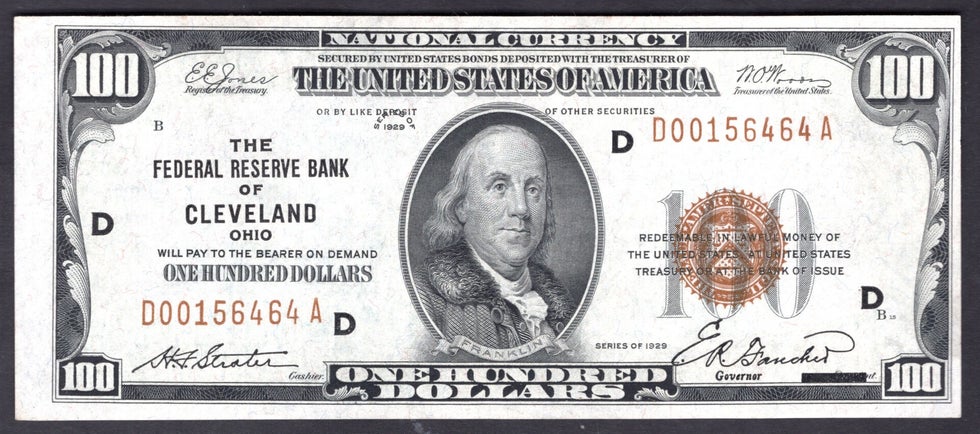1929 saw the introduction of small size Federal Reserve Bank Notes, with a distinctive brown seal.
Denominations started with the $5 bill, ranging through to the $100. Only Seven of the 12 Federal Reserve Banks issued the $100 denomination, ranging from New York's print run of 492,000 notes including replacements, down to just 48,000 for Dallas.
At a time when the average weekly wage was approximately $18, very few people would have seen bills above $5 or $10 on a regular basis.
The notes bear the signature of Walter Woods, Treasurer of the United States, who served in this office under Three Presidents;
Coolidge, Hoover and F. Roosevelt.

Add comment
Comments